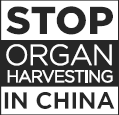A key feature in the harvesting of organs from living practitioners is that the source of organs is controlled by the military and the participating hospitals are dominated by the military or those that have close ties to the military. Due to the nature of military security, the truth is concealed from the outside world.
Military-Controlled Concentration Camps
Since the judicial system cannot accept inmates without names or addresses, based on the regime’s usual practice, they would likely let the military take over these cases. According to sources inside the regime, concentration camps are directly linked to military-controlled areas.
After the allegation of live organ harvesting from Falun Gong practitioners was made public in March 2006, a senior military doctor of the logistics service in the army in Shenyang Military Zone wrote to The Epoch Times and revealed that there were several dozen of such concentration camps around China. He further reminded the outside world to pay attention to military facilities in China because organ transplants were being administrated there, implying that many military facilities were being used as concentration camps. [1]
Rapid Growth of Organ Transplant in Military Hospitals
China has a vast military medical system. There is the General Hospital of the People’s Liberation Army (PLA), and each military medical university has its own affiliated hospital. The various branches of the military all have their own hospitals. Organ transplantation is one of the most rapidly developing fields in the military hospitals. Zhang Yanling, Minister of Health of the General Logistics Department of the PLA and former president of the Second Military Medical University, was quoted in a December 17, 2008, article on the Xinhuanet website: “In 1978, there were only three hospitals in the military that could perform kidney transplants. Now there are 40 hospitals in the military that can perform liver, kidney, heart, lung, and multiple organ transplants. This is one quarter of the national total.” [2]
The most important enabler for the big leap in military organ transplants has been the control of organ resources.
Military and Armed Police hospitals, as well as Hospitals along China’s Coastline, are the Primary Impetus behind Live Organ Harvesting
Zhongyang Shen, the pioneer of liver transplant in China, is director of the Oriental Organ Transplant Center in Tianjin, the largest such center in Asia. In 2003, Zhongyang Shen founded the Liver Transplant Research Institute of the Armed Police in the General Hospital of Armed Police in Beijing and became its first director.
Bingyi Shi, another key figure, is very active in China’s organ transplant community and often in the media spotlight. He is the director of the Organ Transplant Center of the PLA (People’s Liberation Army), which is located in the General Hospital of the PLA, also known as the No. 309 Hospital.
In Bloody Harvest, Matas and Kilgour interviewed several patients who went to China for organ transplants. The surgeons of these patients all had military backgrounds. One of the patients was admitted at the Shanghai No. 1 People’s Hospital. His surgeon was Dr. Tan Jianming, who is the chief surgeon of the Fuzhou General Hospital of the Nanjing Military Region (formerly known as the 93rd Hospital). Tan also does surgeries at the PLA’s 85th Hospital of the Nanjing Military Region in Shanghai.
Another patient went first to Huashan Hospital in Shanghai (affiliated with Fudan University) for a liver transplant. He was placed under the care of Qian Jianmin, deputy director of the liver center at Huashan Hospital. When no matching organ could be found after several days, Qian suggested that he be transferred to Changzheng Hospital in Shanghai, which is affiliated with Second Military Medical University, saying that it was easier to get organs there. A matching liver was found for the patient on the day he transferred to Changzheng Hospital.
The authors also interviewed a patient who went to the Taiping People’s Hospital in Dongguan City, Guangdong Province, for a kidney transplant. His surgeon was Dr. Gao Wei. Taiping People’s Hospital is a non-military general hospital, but Dr. Gao Wei is also a doctor at the Kidney Transplant Department in Zhujiang Hospital, which is affiliated with First Military Medical University. Dr. Gao is also a part-time surgeon at the Shenzhen Armed Police Coastguard Hospital in Guangdong Province.
In August 2008, the Minister of Health in China launched the “Chinese Scientific Registry of Kidney Transplantation” or CSRKT (www.csrkt.org). Its data center is run by the Organ Transplant Center of the PLA. This gives us a clear idea of the role military hospitals play in China’s organ transplant community.
Reference:
[1] The Epoch Times, “Military Doctor Reveals the Official Process of the CCP’s Stealing and Selling of Organs from Live Falun Gong Practitioners,” http://www.epochtimes.com/gb/6/4/30/n1303902.htm
[2] Xinhua Net, “Thirty Years of a Big Leap in Chinese Military Health Care Condensed in Seven Groups of Data,” http://news.xinhuanet.com/newscenter/2008-12/17/content_10520230.htm
